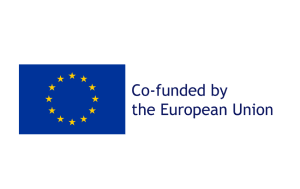New project to help advance gastric cancer screening across the EU
A new EU-funded project, led by the Institute of Clinical and Preventive Medicine of the University of Latvia (UL ICPM) and implemented with more than 20 partners from 14 European countries, is launching an ambitious effort to get more Europeans screened for gastric cancer.
The project “Towards gastric cancer screening implementation in the European Union", abbreviated to TOGAS, is the first pan-European effort to evaluate various strategies to effectively reduce stomach cancer deaths. According to the European Network of Cancer Registries, there were more than 52-thousand gastric cancer deaths in 2020 alone. Early detection of precancerous lesions for surveillance is essential to implement, since currently, no effective screening modality to prevent gastric cancer is available in Europe.
The general objective of the project is to provide national health ministries with the latest evidence-based knowledge through several new pilot studies, each designed to address specific aspects of stomach cancer screening and its early detection. Focusing on cost effectiveness and medical ethics, the results will be used to help each Member State design and implement appropriate stomach cancer prevention.
The project follows an EU Council decision at the end of last year to update existing recommendations for breast, cervical, and colorectal cancer screening. The new approach calls for extending screening programmes to now include prostate, lung and, under certain circumstances, stomach cancer, in a stepwise approach.
The recommendation is part of a new EU Cancer Screening Scheme, put forward as a flagship initiative of Europe's Beating Cancer Plan. The new EU approach, incorporating the latest scientific evidence gathered by TOGAS, invites a gradual introduction in all member states.
TOGAS, supported by the European Union's EU4Health, will run for three years. The project’s scientific manager is the director of the leading partner organisation UL ICPM prof. Mārcis Leja and the team includes UL ICPM researcher and project scientific coordinator Danute Ražuka-Ebela, administred by UL ICPM project coordinator Madara Grīnšteine.
TOGAS PARTNERS:
– Institute of Clinical and Preventive Medicine of the University of Latvia (UL ICPM)
– International Agency for Research on Cancer (IARC)
– European Society of Digestive Oncology (ESDO)
– Digestive Cancers Europe (DiCE)
– European Helicobacter and Microbiota Study Group (EHMSG)
– European Cancer Organisation (E.C.O.)
– National Institute of Public Health in Slovenia (NIJZ)
– Nantes University Hospital in France
– Erasmus University Medical Center in the Netherlands
– Portuguese Oncology Institute (I.P.O.)
– Madrilenian Health Service in Spain
– Foundation for Biomedical Research in Spain
– Lithuanian University of Health Sciences
– Hațieganu University of Medicine and Pharmacy in Romania
– Wroclaw Medical University in Poland
– University Hospital Centre Zagreb in Croatia
– Clinical Hospital Center Rijeka in Croatia
– Thomas More University in Belgium
– Beakon Hospital Sandyford Limited in Ireland
– Otto-von-Guericke University Magdeburg in Germany
– Maria Skłodowska-Curie Institute of Oncology in Poland
For additional information, please contact:
Amanda Boka,
Public Relations Specialist,
Inst. of Clinical and Preventive Medicine,
University of Latvia,
+371 26551248
e-mail:
1 Gaiļezera Street,
Riga, Latvia, LV-1079

This project has received funding from the European Union programme EU4Health under Grant Agreement No 101101252. Views and opinions expressed are however those of the author(s) only and do not necessarily reflect those of the European Union or European Health and Digital Executive Agency (HaDEA). Neither the European Union nor the granting authority can be held responsible for them.

